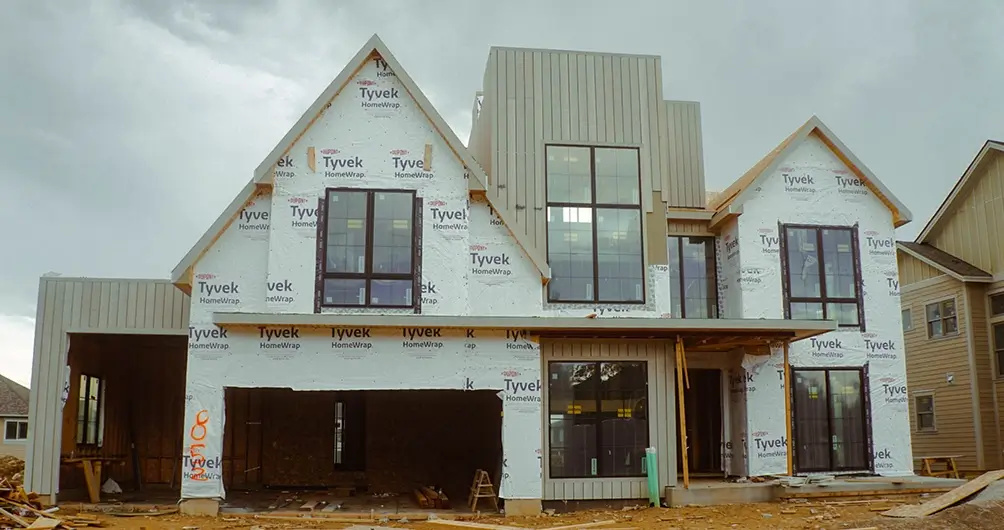 Building Supporters Services
High Performance Colorado Inspection Report Review: Second Opinion + Re-Inspections
Building Supporters Services
High Performance Colorado Inspection Report Review: Second Opinion + Re-Inspections
When clarity and precision are key to making an intelligent decision, settling for the standard is...

Schedule now. Get transparent pricing plus instant, easy online scheduling.
Get Your ePriceA comprehensive study by the U.S. Geological Survey (USGS), encompassing 2,100 private wells across 48 states, revealed that approximately 20% of these wells contain levels of contaminants—including nutrients, major ions, trace elements, radon, volatile organic compounds (VOCs), and fecal indicator bacteria—that exceed human-health benchmarks.
This underscores the vital necessity for homeowners to undertake personal responsibility for regular monitoring and maintenance, as the Federal Safe Drinking Water Act does not regulate the quality and safety of water from private wells.
Meanwhile, for city water, while over 90% of Americans rely on community water systems that comply with safe drinking water standards, challenges persist, notably with lead contamination due to ageing infrastructure. Despite the U.S. being home to some of the safest tap water globally, risks from sewage releases, natural minerals, manufacturing processes, and inadequate water treatment can compromise water quality.
Both scenarios highlight the critical need for Building Supporters to provide invaluable insights into water safety, enabling homeowners to make educated decisions about water treatment and ensuring access to clean, safe drinking water for their families. These findings and recommendations are not just about improving water quality—they are about safeguarding public health and instilling confidence in the water we consume daily.
We utilize calibrated and highly specialized sensors: Laboratory-grade US Environmental Protection Agency (EPA) approved method (Method 1001, Rev. 1.1.) utilizing Anodic Stripping Voltammetry (ASV) measurement for rapidly identifying lead contamination. This process is comparable to laboratory techniques such as ICP-MS and atomic absorption.
We can test for:
Building Supporters can take samples from any location within the home; samples are typically taken from the kitchen sink.
Testing exceeds local and state water quality standards and those set by the EPA, as presented in the National Primary Drinking Water regulations in 40 CFR 141 and 142. Complies with requirements of government based lenders (VA, FHA).
City Water: We can test for properties: Alkalinity (as CaCO3) Conductivity Hardness Total Dissolved Solids Turbidity pH Bacteria: E. coli Total Coliform Inorganics: Boron Chloride Fluoride Nitrate (as N) Nitrite (as N) Phosphorus Silica Sulfate Metals: Aluminum Antimony Arsenic Barium Beryllium Cadmium Chromium (Total) Cobalt Copper Iron Lead Lithium Manganese Mercury Molybdenum Nickel Selenium Silver Strontium Thallium Tin Titanium Uranium Vanadium Zinc Minerals: Calcium Magnesium Potassium Sodium Calculated Parameter: Bicarbonate CSMR Carbonate Grains per gallon Hardness (Ca,Mg) Hardness (Total) Langelier Saturation Index Sodium Adsorption Ratio Self Tests: Hydrogen Sulfide (H2S) Gas
Rain + Well Water: We can test for properties: Alkalinity (as CaCO3) Hardness Total Dissolved Solids pH Inorganics: Boron Chloride Fluoride Nitrate (as N) Phosphorus Sulfate Metals: Aluminum Antimony Arsenic Barium Beryllium Cadmium Chromium (Total) Cobalt Copper Iron Lead Lithium Manganese Mercury Molybdenum Nickel Selenium Silver Strontium Thallium Tin Titanium Uranium Vanadium Zinc Minerals: Calcium Magnesium Potassium Sodium Calculated Parameter: Bicarbonate CSMR Carbonate Grains per gallon Hardness (Ca,Mg) Hardness (Total) Langelier Saturation Index Sodium Adsorption Ratio Self Tests: Free Chlorine Total Chlorine. Bacteria only included with standard well water testing.
AHERA, NIOSH, ASTM, ISOI, EPA, IRSST, TEM, PLM, and more. We can meet any advanced testing requirement including measurements for tannins, radon, radionuclides, heterotrophic bacteria, pesticides, plasticizers, pharma and personal care contaminants, SVOCs, VOCs, petroleum compounds, organics, metals, inorganics, disinfection byproducts, bacteria, properties, calculated parameters, and more.
City + Rain + Well Water: We can test for: properties: Alkalinity (as CaCO3) Conductivity Hardness Total Dissolved Solids Turbidity pH Bacteria: E. coli Total Coliform Total HPC Disinfection Byproducts: 7 Bromochloromethane Bromodichloromethane Bromoform Chloroform Dibromochloromethane Dibromomethane n Nitrosodimethylamine Inorganics: Boron Chloride Fluoride Nitrate (as N) Nitrite (as N) Phosphorus Silica Sulfate Metals: 25 Aluminum Antimony Arsenic Barium Beryllium Cadmium Chromium (Total) Cobalt Copper Iron Lead Lithium Manganese Mercury Molybdenum Nickel Selenium Silver Strontium Thallium Tin Titanium Uranium Vanadium Zinc Minerals: Calcium Magnesium Potassium Sodium Organics: 3 2,4-Dichlorophenol Azobenzene Tannins Pesticides: 5 1,3 Dichloropropene 2,4,5-Trichlorophenol 2,4,6-Trichlorophenol 2-Methyl-4,6-dinitrophenol Hexachlorobenzene Petroleum Compounds: Acenaphthene Acenaphthylene Anthracene Benz[a]anthracene Benzene Benzo(a)pyrene Benzo(b)fluoranthene Benzo(g,h,i)perylene Benzo(k)fluoranthene Chrysene Dibenzo(a,h)anthracene Ethylbenzene Fluoranthene Fluorene Indeno[1,2,3-c,d]pyrene Methyl Tertiary Butyl Ether Naphthalene Phenanthrene Pyrene Toluene m,p Xylene o Xylene Pharma & Personal Care: 4-Chloro-3-methylphenol Plasticizers: Benzyl butyl phthalate Bis(2-ethylhexyl) phthalate Di-n-butyl phthalate Di-n-octyl phthalate Diethyl phthalate Dimethyl phthalate Radionuclides: Gross Alpha Activity Gross Beta Activity Radon SVOCs: 33 2,4-Dimethylphenol 2,4-Dinitrophenol 2,4-Dinitrotoluene 2,6-Dinitrotoluene 2-Chloronaphthalene 2-Chlorophenol 2-Methylnaphthalene 2-Nitroaniline 2-Nitrophenol 3,3 Dichlorobenzidine 3-Nitroaniline 4-Bromophenyl phenyl ether 4-Chlorophenylphenyl ether 4-Nitrophenol Aniline Benzidine Benzoic acid Benzyl alcohol Bis(2-chloro-1-methylethyl) ether Carbazole Dibenzofuran Hexachlorocyclopentadiene Isophorone N-Nitrosodi-n-Propylamine N-Nitrosodiphenylamine Pentachlorophenol Phenol bis(2-Chloroethoxy)methane bis(2-Chloroethyl) ether m,p-Cresol o-Cresol p-Chloroaniline p-Nitroaniline VOCs: 48 1,1 Dichloroethane 1,1 Dichloroethylene 1,1 Dichloropropene 1,1,1 Trichloroethane 1,1,1,2 Tetrachloroethane 1,1,2 Trichloroethane 1,1,2,2 Tetrachloroethane 1,2 Dichlorobenzene 1,2 Dichloroethane 1,2 Dichloropropane 1,2,3 Trichlorobenzene 1,2,3 Trichloropropane 1,2,4 Trichlorobenzene 1,2,4 Trimethylbenzene 1,3 Dichlorobenzene 1,3 Dichloropropane 1,3,5 Trimethylbenzene 1,4 Dichlorobenzene 2,2 Dichloropropane Bromobenzene Bromomethane Carbon Tetrachloride Chlorobenzene Chloroethane Chloromethane Chlorotoluene 2 Chlorotoluene 4 Dibromochloropropane Dichlorodifluoromethane Dichloromethane Ethylene dibromide Hexachlorobutadiene Hexachloroethane Isopropylbenzene Nitrobenzene Pyridine Styrene Tetrachloroethylene Trichloroethylene Trichlorofluoromethane Vinyl Chloride cis 1,2 Dichloroethylene n Butylbenzene n Propylbenzene p Isopropyltoluene sec Butylbenzene tert Butylbenzene trans 1,3 Dichloropropene Calculated Parameter: Bicarbonate CSMR Carbonate Grains per gallon Hardness (Ca,Mg) Hardness (Total) Langelier Saturation Index Sodium Adsorption Ratio Total THMs Self Tests: Hydrogen Sulfide (H2S) Gas
Do you need specific, or individual item(s) tested? We can adjust laboratory testing to meet your exact needs. Need something tested that’s not listed? Chances are we CAN test for it.
High performance city, rain and well water testing:
Have questions, unusual complexities or demanding requirements? Contact us for fast same/next day proposals and answers. Prices vary based on advanced packages and individual item laboratory testing.
Water quality issues, including concerns about lead contamination, are significant across the United States, and Colorado is no exception. To address these concerns head-on, Denver has initiated a comprehensive Lead Reduction Program aimed at tackling the root cause of lead contamination by replacing aging lead service lines that connect homes to the main water supply.
This program is a response to the health risks posed by lead, a toxic metal that can be harmful even at low exposure levels, particularly to children. Lead can enter drinking water when service pipes that contain lead corrode, especially where the water has high acidity or low mineral content. In an effort to safeguard public health, the Denver Water Lead Reduction Program was developed with a target to replace all lead service lines within Denver’s water system over a 10-year span.
Denver Water Lead Reduction Program Overview
Denver Water Lead Reduction Program Video
Denver Water Quality Report – 2022
EPA National Primary Drinking Water Regulations Chart:
Most common conditions, nearby activities and testing:
We cover a 75+ mile radius of Boulder: Same-day reports. Fully Insured. Save more money: We inspect, test, report, and protect more - way more. The difficult done immediately. The impossible takes a little longer. Miracles by appointment. Schedule today.

 Building Supporters Services
High Performance Colorado Inspection Report Review: Second Opinion + Re-Inspections
Building Supporters Services
High Performance Colorado Inspection Report Review: Second Opinion + Re-Inspections
When clarity and precision are key to making an intelligent decision, settling for the standard is...
 Building Supporters Services
High Performance Nationwide Remote Inspection Report Review: Second Opinion
Building Supporters Services
High Performance Nationwide Remote Inspection Report Review: Second Opinion
When you’re making crucial decisions about property investments, the accuracy and clarity of your inspection report...
 Building Supporters Services
High Performance Nationwide Remote Inspection: Live Video Consultation
Building Supporters Services
High Performance Nationwide Remote Inspection: Live Video Consultation
Ready to revolutionize the way you handle your property challenges? Forget waiting; let’s dive straight into...
 Building Supporters Services
High Performance Nationwide Remote Inspection: Photo/Video Evaluation
Building Supporters Services
High Performance Nationwide Remote Inspection: Photo/Video Evaluation
Elevate your property experience with ultra-responsive remote evaluation services. When you need instant answers, we’re here...
 Building Supporters Services
High Performance Colorado Commercial Inspections, Building Surveys + Condition Assessments
Building Supporters Services
High Performance Colorado Commercial Inspections, Building Surveys + Condition Assessments
Unparalleled due diligence to maximize your investment: Your ultimate safeguard against the cascade of potential pitfalls...
 Building Supporters Services
High Performance Colorado Pre-Purchase Residential Home Inspections
Building Supporters Services
High Performance Colorado Pre-Purchase Residential Home Inspections
Whether it’s your first home or fifth, dream home or just a stepping stone, make sure...
 Building Supporters Services
High Performance Colorado Residential New Home Construction Inspections (Pre-Drywall & Phases)
Building Supporters Services
High Performance Colorado Residential New Home Construction Inspections (Pre-Drywall & Phases)
The best money you will ever spend while constructing a new home. Period. Full stop. In...
 Building Supporters Services
High Performance Colorado Pre-Listing Inspections
Building Supporters Services
High Performance Colorado Pre-Listing Inspections
It’s not a matter of IF defects are found, but rather WHEN. No matter how picture-perfect...